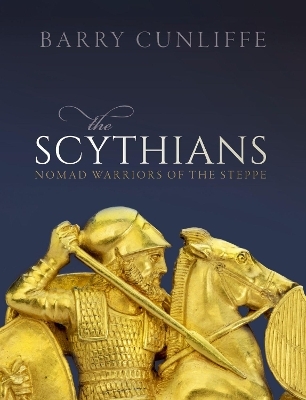
The Scythians
Oxford University Press (Verlag)
978-0-19-882013-0 (ISBN)
Brilliant horsemen and great fighters, the Scythians were nomadic horsemen who ranged wide across the grasslands of the Asian steppe from the Altai mountains in the east to the Great Hungarian Plain in the first millennium BC. Their steppe homeland bordered on a number of sedentary states to the south - the Chinese, the Persians and the Greeks - and there were, inevitably, numerous interactions between the nomads and their neighbours. The Scythians fought the Persians on a number of occasions, in one battle killing their king and on another occasion driving the invading army of Darius the Great from the steppe.
Relations with the Greeks around the shores of the Black Sea were rather different - both communities benefiting from trading with each other. This led to the development of a brilliant art style, often depicting scenes from Scythian mythology and everyday life. It is from the writings of Greeks like the historian Herodotus that we learn of Scythian life: their beliefs, their burial practices, their love of fighting, and their ambivalent attitudes to gender. It is a world that is also brilliantly illuminated by the rich material culture recovered from Scythian burials, from the graves of kings on the Pontic steppe, with their elaborate gold work and vividly coloured fabrics, to the frozen tombs of the Altai mountains, where all the organic material - wooden carvings, carpets, saddles and even tattooed human bodies - is amazingly well preserved.
Barry Cunliffe here marshals this vast array of evidence - both archaeological and textual - in a masterful reconstruction of the lost world of the Scythians, allowing them to emerge in all their considerable vigour and splendour for the first time in over two millennia.
Barry Cunliffe taught archaeology at the Universities of Bristol and Southampton and was Professor of European Archaeology at the University of Oxford from 1972 to 2008, thereafter becoming Emeritus Professor. He has excavated widely in Britain (Fishbourne, Bath, Danebury, Hengistbury Head, Brading) and in the Channel Islands, Brittany, and Spain, and has been President of the Council for British Archaeology and of the Society of Antiquaries, a Governor of the Museum of London, a Commissioner of English Heritage, and a Trustee of the British Museum. His many publications include Facing the Ocean (2001), The Druids: A Very Short Introduction (2010), Britain Begins (2012), By Steppe, Desert, and Ocean (2015), and On the Ocean (2017), all published by Oxford University Press. He received a knighthood in 2006.
Introduction
1: Discovering the Scythians
2: Observing the other
3: Landscape and people
4: Enter the predatory nomad
5: The rise of the European Scythians
6: Scythians in Central Asia
7: Bodies clothed in skins: economy and society
8: Bending the bow
9: Death and the gods
10: The flood continues
11: Reflections on the longue durée
Further reading
Index
Introduction
1: Discovering the Scythians
2: Observing the other
3: Landscape and people
4: Enter the predatory nomad
5: The rise of the European Scythians
6: Scythians in Central Asia
7: Bodies clothed in skins: economy and society
8: Bending the bow
9: Death and the gods
10: The flood continues
11: Reflections on the longue durée
Further reading
Index
| Erscheinungsdatum | 12.10.2021 |
|---|---|
| Zusatzinfo | 258 figures, images and maps |
| Verlagsort | Oxford |
| Sprache | englisch |
| Maße | 189 x 244 mm |
| Gewicht | 880 g |
| Themenwelt | Geisteswissenschaften ► Archäologie |
| Geschichte ► Allgemeine Geschichte ► Vor- und Frühgeschichte | |
| Geisteswissenschaften ► Geschichte ► Regional- / Ländergeschichte | |
| ISBN-10 | 0-19-882013-5 / 0198820135 |
| ISBN-13 | 978-0-19-882013-0 / 9780198820130 |
| Zustand | Neuware |
| Informationen gemäß Produktsicherheitsverordnung (GPSR) | |
| Haben Sie eine Frage zum Produkt? |
aus dem Bereich


